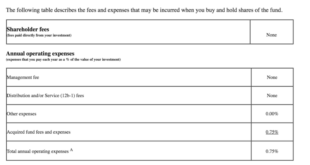Mortgage Broker Pros: Choosing the Right Mortgage Professional. When navigating the complex world of home financing, partnering with a mortgage broker can simplify the process and save you time, effort, and money. Mortgage brokers are intermediaries who connect borrowers with suitable lenders, ensuring tailored solutions for individual needs. In this article, we will explore the pros of working with mortgage brokers, their value to clients, and tips to maximize their benefits.
Understanding the Role of Mortgage Brokers
Mortgage brokers act as matchmakers in the lending industry. They assess a borrower’s financial situation and connect them with lenders offering the best terms. Unlike loan officers tied to specific banks, brokers have access to a wide network of financial institutions, making them versatile and efficient.
Mortgage Broker Pros: Why They Are Worth Considering
- Access to Multiple Lenders
Mortgage brokers have an extensive network of lenders, providing access to a variety of loan products, including those not directly available to the public. - Personalized Loan Recommendations
Brokers tailor their advice based on your credit score, income, and home-buying goals, ensuring the best loan fit. - Expert Guidance
Their in-depth knowledge helps clients understand complex mortgage terms and avoid pitfalls. - Time Savings
Brokers handle paperwork, pre-approvals, and negotiations, saving you significant time. - Potential Cost Savings
Brokers can secure lower interest rates and fees, ultimately reducing the total cost of the loan. - Credit Protection
By evaluating multiple lenders with a single credit inquiry, brokers protect your credit score. - Negotiation Leverage
Their established relationships with lenders enable better negotiations for favorable terms. - Flexibility in Loan Types
They offer access to niche products like FHA loans, VA loans, and adjustable-rate mortgages. - Assistance for Complex Situations
For borrowers with unique financial circumstances, brokers provide tailored solutions. - Support Throughout the Process
From pre-approval to closing, brokers provide ongoing assistance, making the process smoother.
How to Choose the Right Mortgage Broker
- Check Credentials and Licensing
Verify their license and certifications with the National Mortgage Licensing System (NMLS). - Review Experience and Expertise
Opt for brokers with a proven track record in the mortgage industry. - Seek Referrals and Reviews
Ask for recommendations from friends or read online reviews to gauge reliability. - Understand Fee Structures
Clarify how brokers are compensated and any fees involved. - Assess Communication Style
Choose someone who communicates clearly and is responsive to your questions. - Inquire About Their Network
A broad lender network indicates more options for your loan needs. - Request References
Speak with past clients to gain insights into their experiences. - Evaluate Transparency
A trustworthy broker should disclose all costs and provide clear loan comparisons. - Test Their Problem-Solving Skills
Discuss hypothetical scenarios to see how they handle challenges. - Consider Their Commitment
Select a broker who prioritizes your financial goals over quick deals.
10 Tips for Working Effectively with a Mortgage Broker
- Define your home-buying budget and loan preferences before meeting the broker.
- Provide accurate financial information to help the broker find the best deal.
- Ask detailed questions about loan options and repayment terms.
- Ensure the broker is clear about their fees and compensation structure.
- Monitor the broker’s communication and responsiveness.
- Compare the broker’s recommendations with online mortgage calculators.
- Request multiple loan options for a comprehensive comparison.
- Stay involved in the process to avoid surprises at closing.
- Research the broker’s recommended lenders for credibility.
- Keep all documents organized and ready for submission.
10 FAQs About Mortgage Brokers
- What is a mortgage broker?
A mortgage broker is a professional who connects borrowers with lenders, offering tailored loan solutions. - How is a mortgage broker different from a loan officer?
Brokers work with multiple lenders, while loan officers represent specific institutions. - Do mortgage brokers charge fees?
Yes, brokers may charge fees paid by the borrower, lender, or both, depending on the agreement. - Are mortgage brokers regulated?
Yes, brokers are licensed and regulated by the National Mortgage Licensing System (NMLS). - Can a broker improve my loan terms?
Yes, their network and negotiation skills often lead to better rates and terms. - Do mortgage brokers work with all types of loans?
They work with conventional, FHA, VA, USDA, and other specialized loan types. - How do brokers protect my credit score?
They minimize credit inquiries by gathering loan offers through a single application process. - Are brokers suitable for first-time buyers?
Absolutely. They simplify the process and provide guidance tailored to beginners. - How long does the mortgage process take with a broker?
The timeline varies but is often faster due to the broker’s streamlined approach. - Can brokers help with refinancing?
Yes, they assist with refinancing by finding lower rates or better loan terms.
Conclusion
Mortgage brokers offer a range of advantages, from access to diverse lenders to expert guidance tailored to individual needs. Their ability to simplify the mortgage process while securing cost-effective solutions makes them invaluable partners for homebuyers and refinancers. By choosing a broker wisely and staying engaged throughout the process, borrowers can maximize these benefits.
Whether you’re a first-time buyer or looking to refinance, partnering with a trusted mortgage broker ensures a seamless and rewarding experience. Take the time to research and select a broker who aligns with your goals, and enjoy the peace of mind that comes with expert assistance in navigating the mortgage landscape.
 mortgage.kbk.news
mortgage.kbk.news
